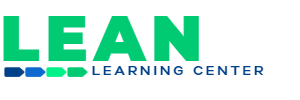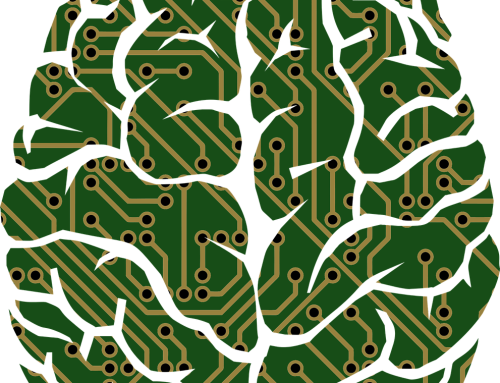The April issue of Harvard Business Review features an article “Culture Is Not the Culprit,” by Jay W.Lorsch and Emily McTague. I recommend spending some time reading this. The authors interviewed current and former CEO’s who have made major changes in their companies. The leaders interviewed “…say that culture isn’t something you ‘fix’…culture change is what you get after you have put new processes or structures in place to tackle tough business challenges like reworking an outdated strategy or business model.”
“Culture is an outcome – not a cause or a fix.”
This resonates with me. I have always struggled a bit with the notion of changing culture as an end game of its own. The outcomes of an organization – results, market competitiveness, and culture – are the product of the processes, systems, and rewards that are in place. Lorsch and McTague profile the business challenges faced by four companies and their CEO’s – Ecolab, Delta, Ford, and Novartis. All were confronted by tough markets and strong competitors. Three of the four were managing large complex acquisitions and mergers. Two were on the brink of or coming out of bankruptcy. In these situations, the business demand was clear. The existing business processes weren’t designed to deliver what was needed going forward. Each leader defined critical business requirements, selected process changes with focused purpose to meet the challenge, and in the end delivered both notable results and substantially changed cultures.
On the lean journey I have the privilege of working with organizations that may not be featured on this month’s Harvard Business Review but have tough business results to tackle just as the big four noted above do. They have one thing in common. Lean principles and systems are central to their current and future state business model. The leaders of these companies have asked the question “What must the business deliver and how can lean help us do it?” Lean, in and of itself, is not the overarching goal. More important, lean is a strategic choice rather than a tactic selected for cost reduction projects as an example.
Will culture change if new direction and operating principles are clear? No, the process and systems must change as well. Simply stated “how we do things around here” must change. To make this change organizations need to follow a path we teach and coach, Learn – Apply – Reflect.
- The Learn phase includes providing relevant understanding about why the new principle, expectation, or goal is important. Learn also covers instruction about the process and how attainment of the goal is measured. Initial training occurs here. Knowledge is the objective of this phase. Often, companies provide extensive training which is commendable but insufficient. The next two steps need to occur for the new practice to get traction.
- Just do it. Use the knowledge. Practice – over and over again. Build a skill. New practices are not easy. One training class doesn’t create skill. If you don’t believe that, learn to play golf or start a fitness program. Organizations take this step in different ways. Some use daily focus meetings. Three companies with positive trends implemented daily lean management meetings under various names. This practice created the habit of team alignment, engagement, and improvement. If you read the article you will see that Alan Mulally, CEO, did the same thing at Ford. Another company has value stream team meetings to break down silos, become more transparent and focus on the customer. I must say these meetings are not long – 15-30 minutes with stoplight triggers for discussion. A different approach uses direct observation, structured improvement, and experimentation as a pivotal keystone disruption to the current way business is done. There are many places to start. It is important to have a relevant and consistent practice, priority and expectation across the organization.
- This is the third step. The team or organization answers a few questions – 1) What was supposed to happen? 2) What did happen and why? 3) What did we learn? 4) What will we do differently next time? This is conversation causes organization learning to occur. If the practice isn’t working (getting the expected result) the team understands why and moves to the next step. Processes and systems that work are recognized. From here the belief that this new way of working is something to keep.
At this point I would like to add one more step, Recognize. When observing the team working with the process and during the AAR it will become evident who is engaged and who may not be. To change the results, leaders must change processes, systems and behaviors. Until leaders reward and recognize the members who deliver both the process and the result, the current culture will toss the new approach in the “Program of the Month” trash pile.
Let me be clear, culture is important. Every leader needs to understand how the current culture works. A starter list to define current culture includes:
- What is the baggage from the past?
- How do employees react to change?
- How does information move formally and informally?
- What does the expectation for change and improvement look like?
- How are results produced?
- What behavior is recognized and rewarded? Inhibited or scorned?
- How are problems dealt with?
- How is time used?
Again, the goal isn’t to change the culture. The goal is to have a culture change as an outcome. Understand the business challenge and define the process and system levers to pull that will address the challenge. The culture change and results will follow.
A mentor of mine often says “Purpose first, process and tools second.” Pretty good advice even though it missed the cover story in the HBR.
Lean Learning Center
The Lean Learning Center was founded in 2001 to address the gaps and barriers that are holding back companies from successful and sustainable lean transformation. In addition to the advanced curriculum, the Center has developed a learning environment designed specifically for adult learning utilizing techniques that include discovery simulations, case studies, personal planning, and reflection – ultimately engaging people at a deep and personal level. We bring our unique lean understanding in creative ways to executives, managers, supervisors, change agents and front-line employees.
info@leanlearningcenter.com
Phone: 248-906-8605





